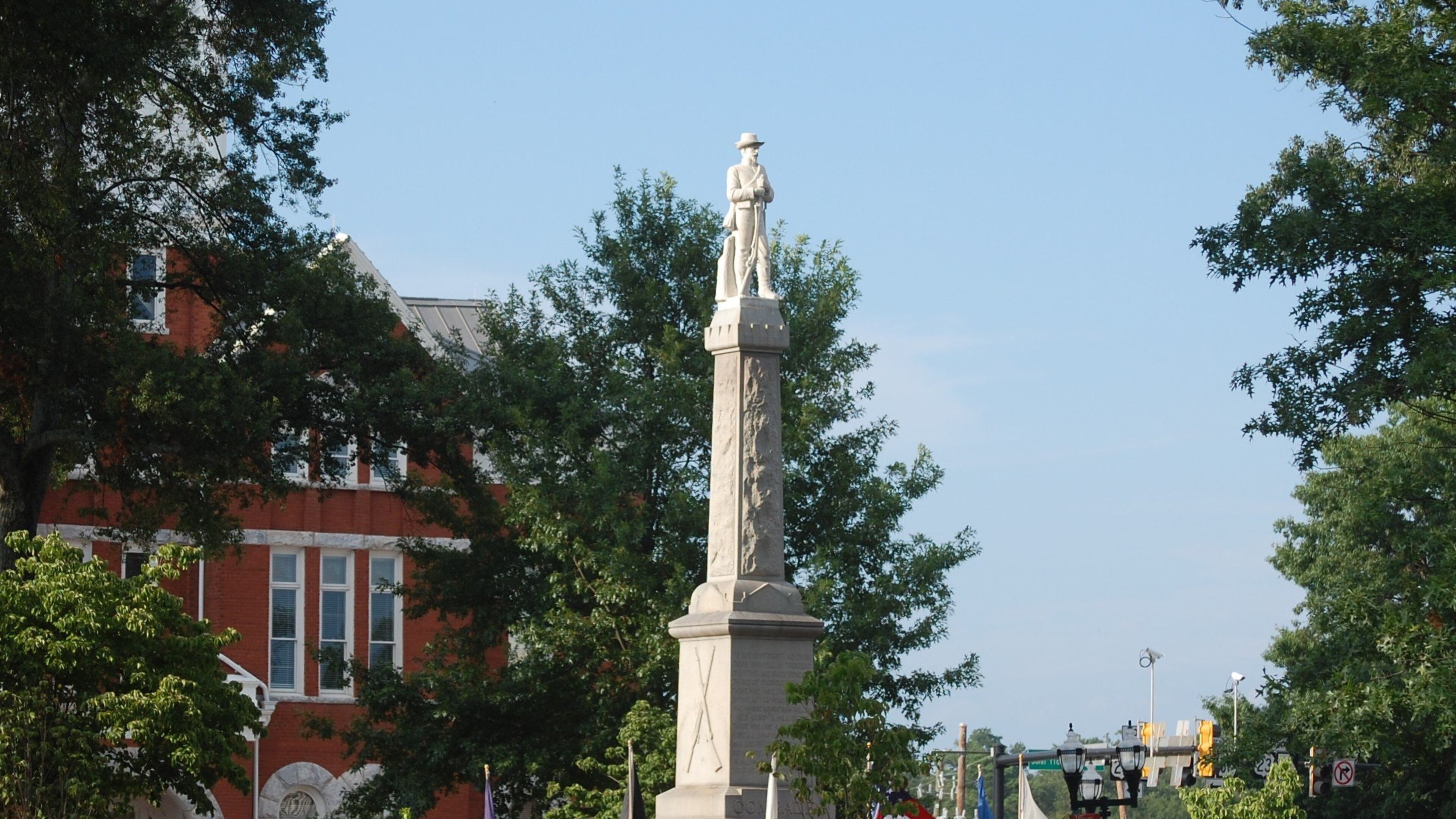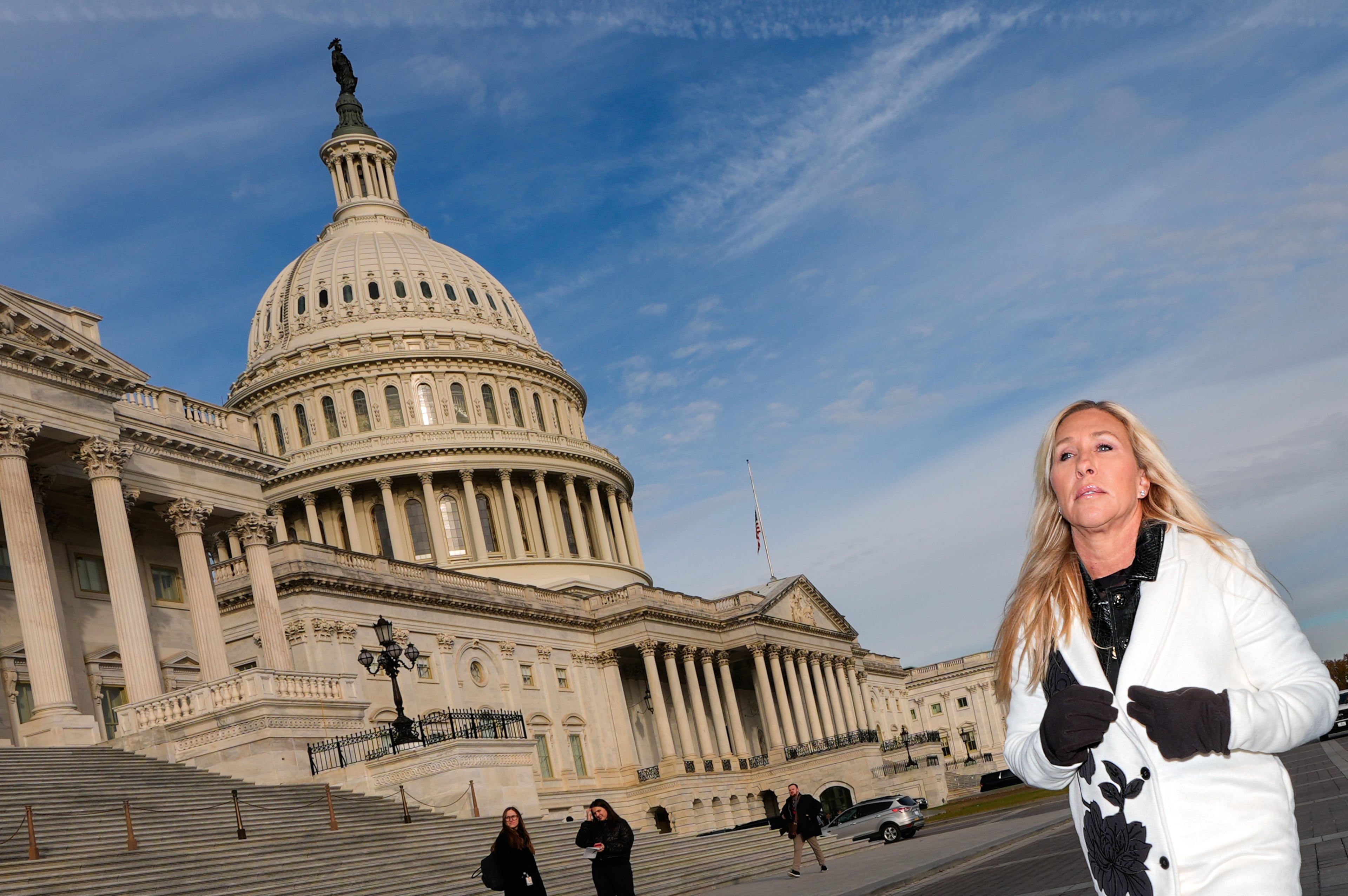The Week: Monument debate moves to the Okefenokee

The debate over how to handle the state’s scores of Confederate monuments remained hot for another week while taking some wild turns.
First, it got kind of personal when state Rep. Jason Spencer, R-Woodbine, wrote to former Democratic state Rep. LaDawn Jones of Atlanta — after she criticized his support for leaving Civil War monuments as they are — suggesting that if she took that kind of talk down to South Georgia, she "will go missing in the Okefenokee."
Spencer stressed in a text message that he was not threatening her, but instead offering a “warning to her of how people can behave about this issue.”
Jones responded that she saw his remarks as a “threat of physical violence” but added that she was confident that future generations will abandon a “we are better than them” mentality.
Jones, in an interview, also talked about the friendly, if sometimes testy, relationship she has with Spencer, who sat next to her for four years in the Georgia House.
“If it were anybody other than Jason Spencer, then I would be alarmed. But we had a unique relationship in the Georgia Legislature,” Jones said. “If that had come from anybody else, I’d take it as a serious threat.”
South Georgia isn't the only scene where the Civil War monuments have become an issue. A New York accent joined the debate this week, and it turned on an interesting choice: Ulysses S. Grant.
Two statues in Brooklyn of the Union commander and later president, as well as his monumental tomb in Manhattan, could now be subjected to a review that New York City Mayor Bill de Blasio has promised.
Grant’s offense? He issued an order during the Civil War to expel Jews from three states.
- Is it quitting time? Two more candidates for statewide office decided this past week to quit the jobs that, until now, have been the biggest entries on their resumes, at least in a political sense.
In his pursuit of the governorship, Republican Hunter Hill is saying bye-bye to his seat in the state Senate representing parts of Atlanta and east Cobb County.
Geoff Duncan is doing the same with his House seat. The Republican from Cumming wants to spend more time on his run for lieutenant governor.
It turns out that "Should I Stay or Should I Go?" is still as tough a question as when The Clash first posed it. It's a matter of leaving to devote more time to meeting voters on the campaign trail and potential donors during fundraising (especially during the 40-day legislative session) versus staying on the job and reaping the potentially high-profile exposure that comes with it.
So far, one other candidate for governor, Democrat Stacey Abrams, has decided to leave office to try to get a better one. Her fellow Democrat, state Rep. Stacey Evans, has decided to hold tight for now. On the Republican side, Lt. Gov. Casey Cagle, Secretary of State Brian Kemp and state Sen. Michael Williams have decided they can both campaign and keep their positions.
In the lieutenant governor’s race, state Senate President Pro Tem David Shafer and state Sen. Rick Jeffares have decided, at least for now, that it’s easier to get a new job while holding an old one.
- Isakson's default position: President Donald Trump has dangled the possibility of shutting down the federal government if Congress doesn't set aside seed money in the upcoming spending bill for the border wall he promised during the campaign.
Without mentioning the wall specifically, Georgia U.S. Sen. Johnny Isakson said a shutdown isn't worth the trouble.
“I’m not interested in doing that,” he said.
Congress is about to return from its August recess, and raising the borrowing limit and funding the government — to avoid a shutdown — are two of the biggest items on its to-do list.
- Immigration, the diaper version: If Georgia U.S. Sen. David Perdue gains approval for his proposal to cut legal immigration in half, one place to measure its impact could be the maternity ward.
The Pew Research Center came out with data this week showing that immigrant women boosted the annual number of births nationwide between 1990 and 2015.
The data showed the annual number of births fell by 4 percent between 1990 and 2015. The biggest factor behind the decline was a 10 percent dropoff in births by U.S.-born women. The study estimated that without the immigrant births, the downturn could have doubled.
Here’s how it looked in Georgia: Without the births from foreign-born women, the state would have seen no change in population over that 25-year time period. Instead, Georgia’s population jumped 17 percent.
- Loading up: Georgia law enforcement agencies could soon see Humvees rolling their way, along with other decommissioned and surplus military equipment and gear.
The Trump administration has rolled back the restrictions President Barack Obama put on items such as armored vehicles, grenade launchers, high-caliber weapons and camouflage uniforms in 2015 after racial unrest in Ferguson, Mo., raised concerns about the militarization of police.
In Georgia, agencies have received items valued at more than $61 million since 1993. They include things like Humvees, boots and flashlights.
- Aid proposal would face a battle: Republican state Sen. Michael Williams said if he is elected governor, he will eliminate the state income tax for active-duty and retired members of the military. Such a move, his campaign estimates, would cost at least $200 million.
The proposal would face steep odds in the Legislature. This past year, House and Senate leaders couldn’t agree on tax cuts, and Gov. Nathan Deal has urged candidates running for his job to resist the “temptation” of making broader changes to the tax system that cold jeopardize the state’s revenue base.
Williams’ campaign manager, Seth Weathers, said the plan’s price tag would fall between $200 million and $300 million, and that “simply freezing the budget” would help pay the cost.
But it’s not that simple. The state takes in an extra $700 million to $900 million in tax collections every year, but growing enrollment in k-12 schools and universities, the rising cost of Medicaid and the price of shoring up the state’s pension system eat up much of that increase.
- Candidates, endorsements, etc.:
— U.S. Rep. John Lewis of Atlanta left no doubt about his plans at a recent event.
“Before I take questions, I want to make one thing clear,” the 77-year-old Democrat said. “I’m running for re-election in 2018.”
— Funeral home owner Tom Lord has announced his candidacy for the District 119 House seat being vacated by state Rep. Chuck Williams, who has been named director of the Georgia Forestry Commission, according to The Athens Banner-Herald.
— Atlanta businessman Charlie Fiveash is running as a Republican to fill the seat state Sen. Hunter Hill is giving up to run for governor. The race has already drawn two other Republicans and three Democrats, who are excited about their chances of winning because Hillary Clinton won the district that spans parts of Atlanta and east Cobb County in last year's presidential election.
— Nikema Williams, the vice chairwoman of the Georgia Democratic Party and an executive for Planned Parenthood's Southeast division, has entered the race for the state Senate seat Vincent Fort has left to run for mayor of Atlanta. The district stretches from Buckhead to the Fayette County line.
The week in Georgia politics
Here’s a look at some of the political and government stories that The Atlanta Journal-Constitution’s staff broke online during the past week. To see more of them, go to http://www.myajc.com/georgia-politics/.



